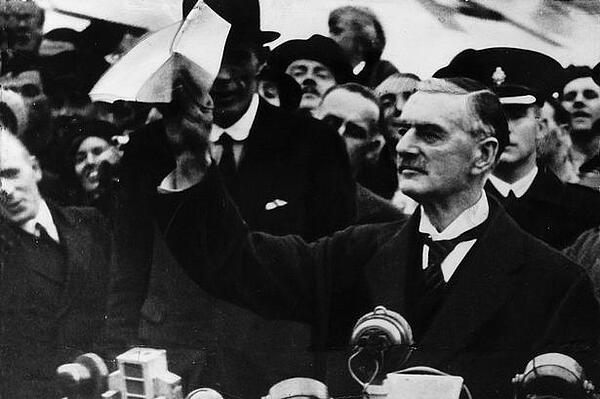Scrap of Paper
On 30 September 1938, Adolf Hitler and Neville Chamberlain signed a piece of paper in Munich, where French, German, British and Italian leaders had gathered to resolve the Czechoslovakia crisis.

The paper stated the following.
"We, the German Fuhrer and Chancellor and the British Prime Minister, have had a further meeting today and are agreed in recognising that the question of Anglo-German relations is of the first importance for the two countries and for Europe.
We regard the agreement signed last night and the Anglo-German Naval Agreement as symbolic of the desire of our two peoples never to go to war with one another again.
We are resolved that the method of consultation shall be the method adopted to deal with any other questions that may concern our two countries, and we are determined to continue our efforts to remove possible sources of difference and thus to contribute to assure the peace of Europe."
Chamberlain proudly held the paper aloft when he emerged from his plane at Croydon Airport. Chamberlain was celebrated as a hero who had ensured a lasting peace in Europe. George VI told him of his gratitude and invited him to visit Buckingham Palace. On his way to the King, large crowds cheered him, and when he reached Buckingham Palace, the King and Queen presented Chamberlain and his wife on the balcony to the throng below.
The Prime Minister famously said that he believed 'it is peace for our time'. But one year later, the document was scorned by Hitler as a 'scrap of paper'. Germany invaded Poland on 1 September 1939. Britain and France declared war on Germany on 3 September 1939. Britain's attempts to appease Nazi Germany had spectacularly failed. Europe was once again at war.
See also: 1939
MLA Citation/Reference
"Scrap of Paper". HistoryLearning.com. 2026. Web.
